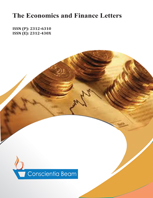Can Small-Cap Active Funds Substantially Outperform the Market Over Time?
DOI:
https://doi.org/10.18488/journal.29.2019.62.189.202Abstract
The Efficient Market Hypothesis (EMF) persist that active management is useless and that investors should rather adopt a passive investment strategy that is less expensive and less risky. However, several previous pieces of literature in the small-cap industry contrast this point of view. This paper investigates the risk and performance of small-cap equity funds in the USA markets over a ten-year period of 2009-2018. The study period is segmented into sub-investment horizons and the funds sampled are split by group of investment style. Our findings are twofold. Firstly, in contrary to the Efficiency Market Hypothesis (EMF) the size effect in small-stock markets could indeed be a proxy of outperformance for active managers. Given that, top performers are observed among active growth funds. Secondly, surprisingly the great majority of funds selected have managed to gradually generate a positive alpha meaning that active management is not always pointless. Therefore, 56.67% of the whole sample has delivered consecutive excess returns over the three investment horizons and each fund within each investment style has outperformed the market at least once. The two last observations support partially the Efficiency Market Hypothesis (EMF) in the way that not all active funds were able to generate a persistent abnormal return over the long term and that some active portfolio managers could be just lucky in picking up stocks.

